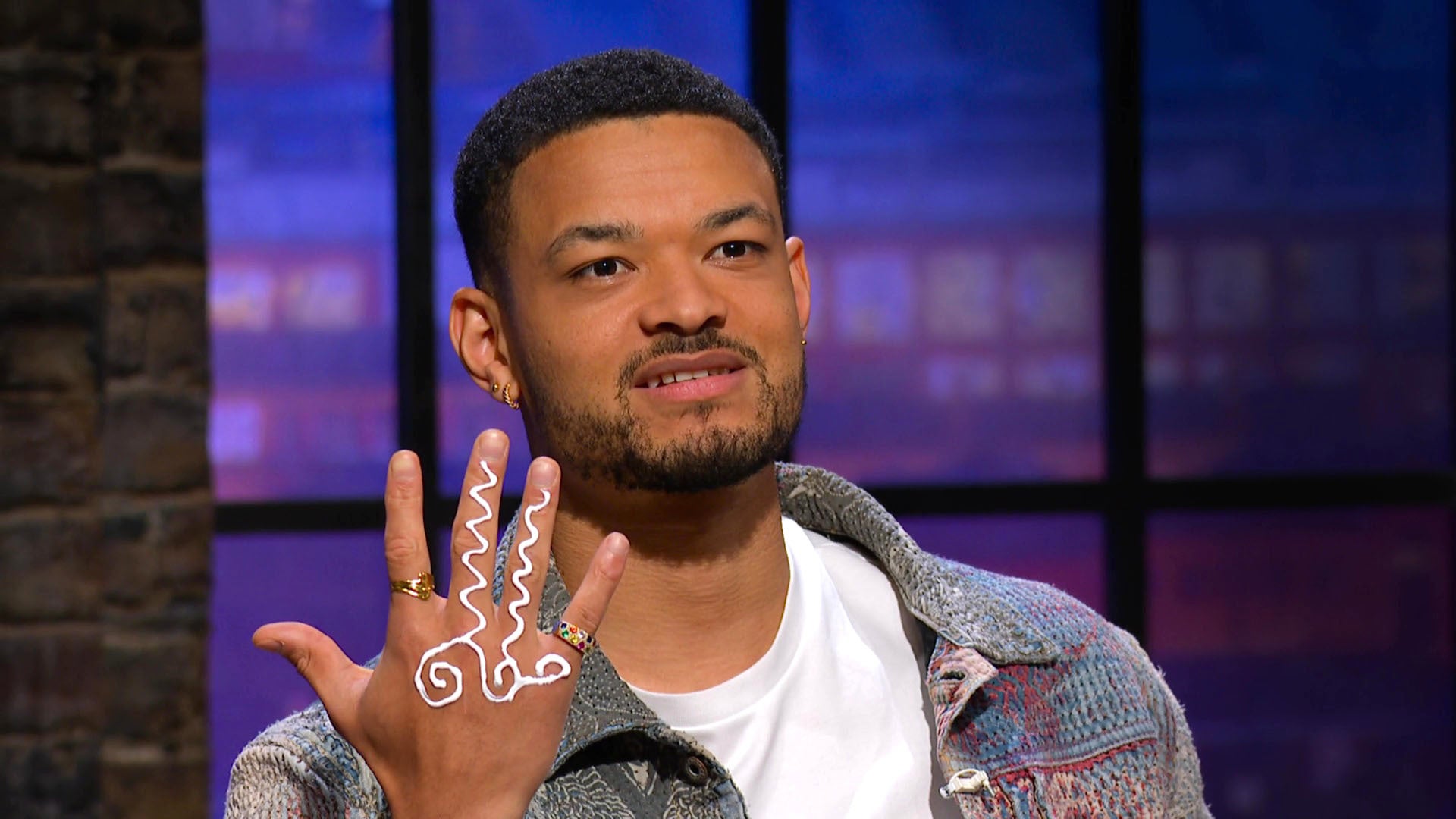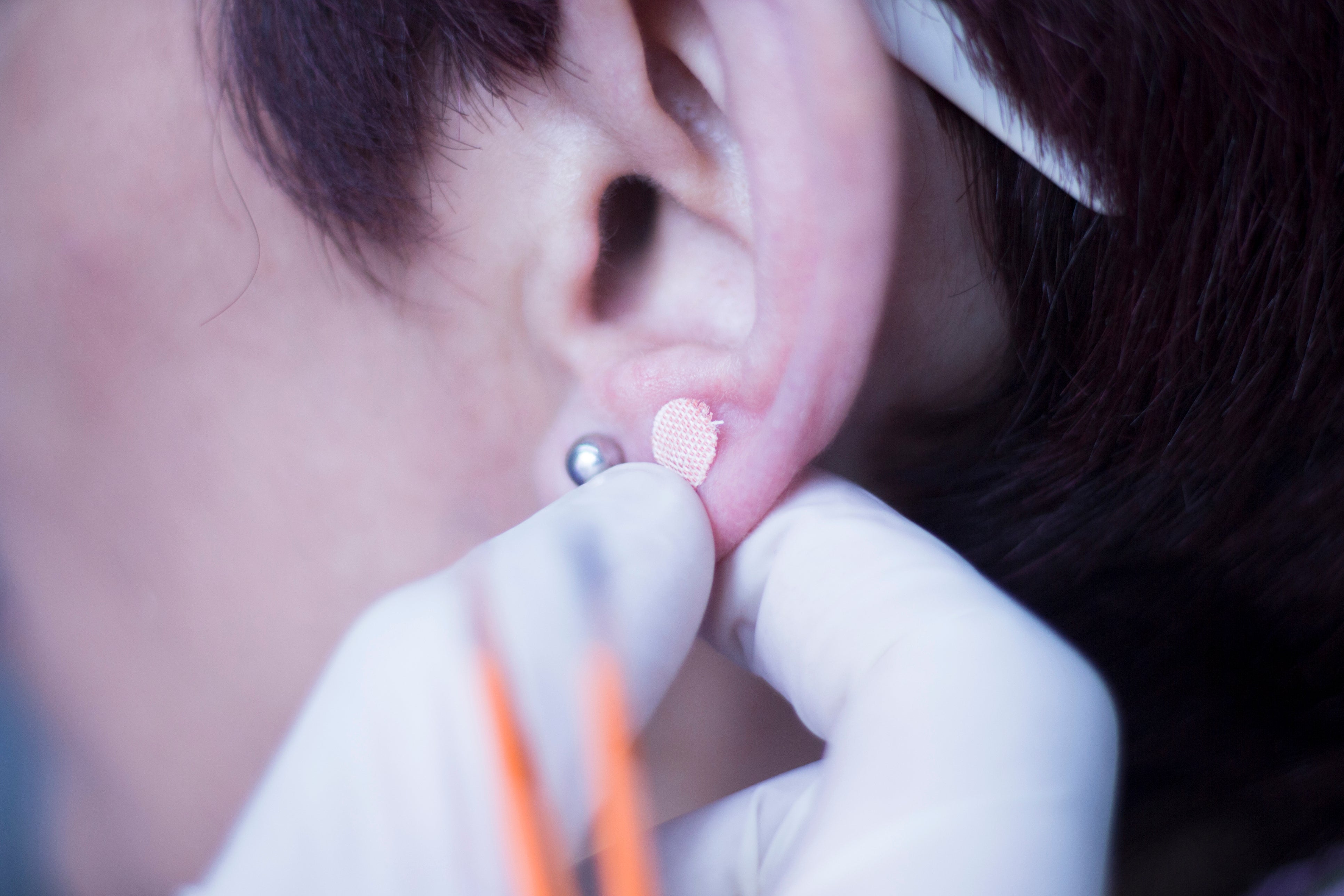BBC reinstates Dragons’ Den episode with disclaimer after ear seeds complaints
Historic pitch by businesswoman Giselle Boxer has proved extremely controversial

Your support helps us to tell the story
From reproductive rights to climate change to Big Tech, The Independent is on the ground when the story is developing. Whether it's investigating the financials of Elon Musk's pro-Trump PAC or producing our latest documentary, 'The A Word', which shines a light on the American women fighting for reproductive rights, we know how important it is to parse out the facts from the messaging.
At such a critical moment in US history, we need reporters on the ground. Your donation allows us to keep sending journalists to speak to both sides of the story.
The Independent is trusted by Americans across the entire political spectrum. And unlike many other quality news outlets, we choose not to lock Americans out of our reporting and analysis with paywalls. We believe quality journalism should be available to everyone, paid for by those who can afford it.
Your support makes all the difference.The BBC has been forced to edit an episode of Dragon’s Den following concerns over “unfounded claims” regarding a product that historically received offers from all six Dragons.
Days after it was revealed the corporation had removed the recent episode from streaming platform BBC iPlayer, the instalment, which aired on 18 January, has been reinstated, but with a disclaimer
The concerns surrounded a pitch by businesswoman Giselle Boxer for a myalgic encephalomyelitis (ME) product that received six offers and an investment from entrepreneur and podcaster Steven Bartlett.
In the episode, Boxer said she had used “diet, acupuncture, Chinese herbs and ear seeds” to aid her recovery from ME, and had turned the latter idea into the brand Acu Seeds.
However, shortly after, an open letter, organised by Action for ME, to the chairs of two House of Commons select committees, expressed concern over the pitch’s suggestion the product was “responsible for her recovery and should therefore be considered an effective treatment”.
The BBC has said that the episode has now been “edited since broadcast to clarify aspects of the Acu Seeds pitch”, maintaining that the ear seeds were “never described as a cure for ME” .
In a statement of clarification, a spokesperson said: “Dragons’ Den does not, and has never, set out to offer medical advice, and we believe its audience understands this.”
The corporation previously defended the show, saying it “features products from entrepreneurs and is not an endorsement of them”, and described Boxer’s pitch as a “personal experience that led to a business creation”.
ME is a long-term condition with a wide range of symptoms including extreme tiredness, sleep issues and concentration problems, according to the NHS website.

Watch Apple TV+ free for 7 days
New subscribers only. £8.99/mo. after free trial. Plan auto-renews until cancelled

Watch Apple TV+ free for 7 days
New subscribers only. £8.99/mo. after free trial. Plan auto-renews until cancelled
It states that while there is currently no cure for the condition, there are treatments that may help manage it.

During the show, Sheffield-based Boxer told the potential investors that she had established the product after seeking treatments when she was diagnosed with ME at the age of 26.
She said: “Four years ago I was diagnosed with ME. I went from working in a top advertising agency with a busy social life and exercising regularly to being mostly housebound, unable to walk for more than five minutes without having to get back into bed.
“I was told by doctors that I would never recover, work again or have children. I went on a personal healing journey using diet, acupuncture, Chinese herbs and ear seeds. Using this combination, I believe, aided my recovery within 12 months.”
The Acu Seeds product is described as a “DIY needle-free ear acupuncture for anxiety, migraines, hormonal issues, insomnia, weight loss and more”.
Following the episode, a joint letter signed by ME campaign groups was sent to Culture, Media and Sport Committee chairwoman Dame Caroline Dinenage and Health and Social Care Committee chairman Steve Brine.

The groups said that, as the episode was aired in prime time on BBC One, they were concerned that a larger audience would have heard the pitch which they alleged “amounts to an unfounded claim that this form of alternative medicine can cure ME”.
It added: “Sadly, there is currently no known effective treatment for ME. There has been a distinct paucity of research into this disease, compared to other long-term conditions, which means that ME is still without a cure.
“As a result, we remind people to only take medical advice from appropriately qualified healthcare professionals and to ensure that any treatment decisions are evidence-based and fully informed.”
The letter also said broadcasters must make “every effort to ensure that content is accurate and does not contain misleading and potentially dangerous information”.
Acu Seeds has been contacted for comment.
Additional reporting by Agencies



Join our commenting forum
Join thought-provoking conversations, follow other Independent readers and see their replies
Comments